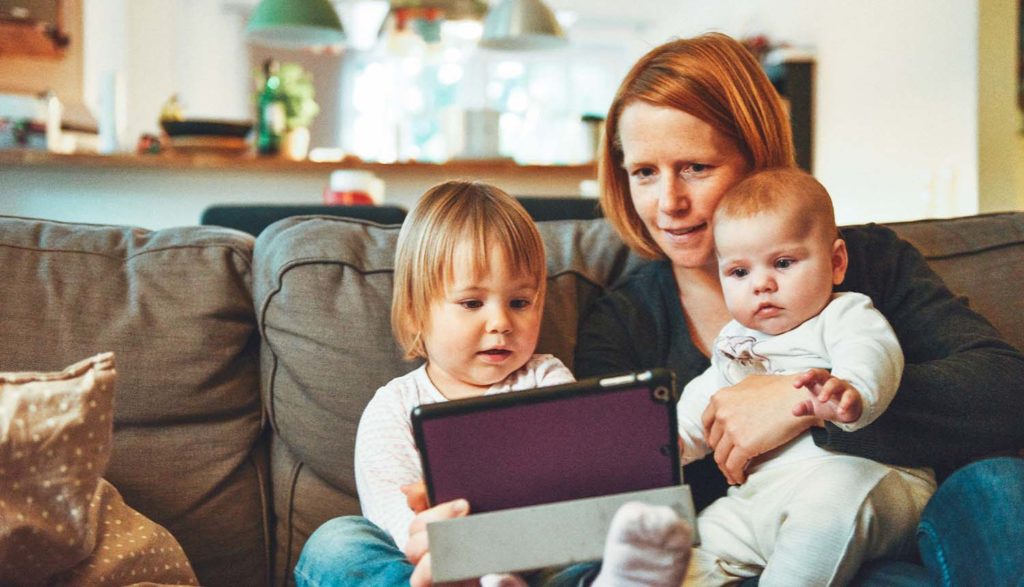Plenty has been written about the ways excessive screen time and social media engagement may harm adolescents. But what about babies who are given screens to pacify them? What might using a digital pacifier inadvertently be doing to slow their cognitive development?
Dr. Richard E. Cytowic asks and addresses those questions in a recent Psychology Today article titled, “How Screens Interfere With the Innate Drive to Socialize.”
Most of us have probably heard at some point how critically a baby’s first three months, and then first two years, of life are for normal development. But we may not know why, exactly, that time frame is so important. The short answer is because that timeframe encompasses a period of brain development unparalleled in the rest of our lives. Cytowic writes:
The visual cortex develops its forest of connections most rapidly during the first three months of life, and the postnatal brain grows in volume by one percent every day, tripling in size between ages 0–2. Early experience is particularly important, and critical time windows exist during which a specific type of input (e.g., vision, hearing, touch) exerts its greatest effect on the developing brain. Patterns of synaptic connections establish themselves through repeated sensory simulation and motor actions.
But let’s say you have screaming child in her car seat at the grocery store. Nothing will calm her down. Until, that is, you hand her a phone or tablet with simple games and images on it. Magically, she grows quiet, entranced by the images and colors she sees.
No problem, right?
Well, it may not be a huge problem if it’s occasional. But if it’s a pattern, Cytowic believes it may be slowing down a child’s natural social development. Instead of looking at faces and reading them, instead of processing the environment around her and forging important neural pathways as she does so, she might be locked onto that colorful screen instead.
“Early screen exposure competes with normal development because the first year of life is peak time for neural plasticity,” Cytowic writes. “ … Early experience is particularly important, and critical time windows exist during which a specific type of input (e.g., vision, hearing, touch) exerts its greatest effect on the developing brain. Patterns of synaptic connections establish themselves through repeated sensory simulation and motor actions. But a reversal of connections already laid down can happen when expected stimulation is absent or blocked by a tablet thrust in front of a baby’s face.”
My point here isn’t to shame parents who’ve ever discovered that a screen can get a screaming baby’s attention very effectively. Instead, it’s simply to recognize that we’re still learning and discovering the ways that our screens impact our brains in really important ways. That’s true for babies, and it’s true for adolescents and adults, too.
Cytowic concludes his observations focusing on infants, but he has something to say about the influence of too much screen time in all of our lives.
“Screens have made it difficult to be present—not just to others but to oneself,” he writes. “Dinner with a friend is marked by constant interruptions. We clutch our phones and take them to the toilet, to the bed, just about everywhere. Their constant presence shunts aside chances for spontaneous encounters, making it easier and more comfortable to relinquish attention to the screen than to make ourselves available others.” In other words, the screens in our lives can impact our relationships with the people in our lives. You could say that our screens stunt our own growth, too.







Recent Comments